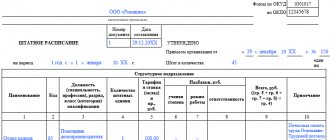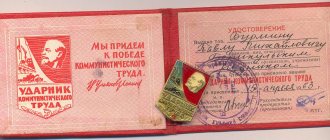Child labor was still mandatory in the Soviet Union. Minors were sent to collective farms, forced to work for the improvement of schools, etc. At that time, this was in no way considered as forced exploitation of child labor. This was considered a direct legislative duty.
Now, with the adoption of the Labor Code of the Russian Federation, as well as the basic law of the state - the Constitution of the Russian Federation, labor is considered completely voluntary, which is why the need arose to introduce responsibility for the exploitation of labor, including children.
What Russian legislation says about child exploitation
The fundamental instrument that governs the prohibition of forced labor of children is the Convention on the Rights of the Child . In the Russian Federation, the labor rights of minors are enshrined in the Labor Code of the Russian Federation.
According to Russian legislation, a citizen has full labor rights from the age of sixteen
It states that a citizen has full labor rights from the age of sixteen. Children can work at an earlier age. But for this it is necessary to have the consent of the parents and, in some cases, the guardianship authorities.
The exploitation of child labor is not regulated by a separate article of the Criminal Code of the Russian Federation. This omission is already being discussed in the State Duma and appropriate amendments will most likely be made soon. In the meantime, Article 127.2 of the Criminal Code of the Russian Federation is being considered as a possible prosecution.
Types of exploitation
The use of illegal child labor can be used in various areas. These include:
- The sphere of advertising.
- Trade.
- The sphere of provision of sexual services.
- Cleaning industry, etc.
Exploitation is always a forced phenomenon. Neither an adult nor a child can be involved in labor. We can highlight a separate article of the criminal code, which regulates illegal recruitment to labor - Article 127 of the Criminal Code of the Russian Federation (Use of slave labor).
Documents required when applying for a job
To get a teenager to work you need:
- document confirming the identity of the person entering the organization (general civil passport);
- confirmation of education, receipt of a certain qualification or certificate of suspension of education;
- work book (if available);
- document of a participant in the pension system (SNILS), except for the situation of hiring for the first place of work;
- confirmation of military registration (for boys);
- permission of the parent (guardian), as well as the guardianship authorities, to employ a child under 16 years of age;
- medical certificate.
The procedure established by the Ministry of Health and Social Development of the Russian Federation (Order No. 302, 04/12/2011) provides for the mandatory medical examination of adolescents every year until they reach adulthood.
Attention! A medical examination of a citizen is carried out at the expense of the enterprise (Articles 69, 266 of the Labor Code of the Russian Federation). If a minor employee does not have a medical certificate, the management of the organization faces liability for an administrative violation (Article 5 of the Code of Administrative Offenses of the Russian Federation).
Corpus delicti
Like any other act enshrined in the Criminal Code, the use of slave labor has its own composition. The main elements in it are the object and the subject.
The object is understood as a social relationship that suffers as a result of criminal influence on it. In this situation, this is the right of a citizen to carry out his labor activity on a voluntary basis. The subject can be absolutely any citizen who has reached the age of sixteen.
In addition, the objective and subjective sides are of particular importance. The objective side is understood as the totality of an unlawful act and the resulting consequences, which are directly dependent.
The subjective side is the guilt of the subject of the crime and his attitude towards it. In this case we are talking about an act committed with direct intent.
Other news
- Malakhov was outraged by the invitation of Instagram “stars” to the Victory Parade
May 09, 2021 | 20:15, Society in Russia
Valery Ivanovich
The TV presenter was surprised by the presence of beauty bloggers from Instagram at the Victory Parade...PHOTO.
- An official from the Khanty-Mansi Autonomous Okrug apologized for advising local residents to raise their “fifths”
May 07, 2021 | 18:41, Society in Russia
Valery Ivanovich
“Raise your butt”: An official from the administration of the Surgut region of the Khanty-Mansi Autonomous Okrug, Lyubov Ivantsova, apologized for a harsh comment addressed to local residents...
- The Administration of the President of the Russian Federation ordered monitoring of the media and blogs
May 07, 2021 | 14:22, Society in Russia
Valery Ivanovich
The Presidential Administration ordered large-scale monitoring of the media, blogs and Telegram channels...
- Queen Elizabeth II became a great-grandmother for the eighth time
May 06, 2021 | 18:34, Society in the World
Mars27
Prince Harry and Meghan Markle have a son. Queen Elizabeth II has already been notified of the birth of her next great-grandson...
- The Ministry of Transport sees no reason to suspend Superjet 100 flights
May 06, 2021 | 12:27, Society in Russia
Valery Ivanovich
The Ministry of Transport believes that there are no grounds for suspending Superjet 100 flights...
- The government has denied that Medvedev’s wife is related to the owners of Miratorg.
May 03, 2021 | 11:06, Society in Russia
Valery Ivanovich
The press service of the Cabinet of Ministers responded to reports about the relationship between Medvedev’s wife and the management of Miratorg...
- The Investigative Committee will check information about a “strange” shelter for the elderly in an apartment in Barnaul. VIDEO
May 02, 2021 | 14:33, Society in Russia
Gromov
“Like in a concentration camp”: The Investigative Committee is conducting a check on information about a shelter for elderly people who live in inadequate conditions and do not receive the necessary medical care in an apartment in a residential building in Barnaul,
- In Krasnodar, the head of a kindergarten forced a child to kiss the ground: VIDEO
May 01, 2021 | 20:28, Society in Russia
Valery Ivanovich
“Kiss the ground, creature”: Police began checking a video of a child being abused in a kindergarten in Krasnodar
- Putin signed the law on sustainable Runet
May 01, 2021 | 19:39, Society in Russia
Valery Ivanovich
.The President signed the law on a sustainable Runet. The document was published on Wednesday on the official legal information portal.
- A bakery that refused to serve gays has closed in Kemerovo: media
May 01, 2021 | 09:58, Society in Russia
Valery Ivanovich
The owner of the company announced this on his page on the social network...
- The head of Lyubertsy advised residents dissatisfied with the landfills to “sell their housing and move out”
April 30, 2021 | 14:31, Society in Russia
Valery Ivanovich
The head of the Lyubertsy district, Vladimir Ruzhitsky, explained his proposal to “move out” to dissatisfied residents. Video…
- The Ministry of Internal Affairs intends to prohibit the issuance of microloans via the Internet without a passport
April 30, 2021 | 07:15, Society in Russia
Valery Ivanovich
The Ministry of Internal Affairs proposes to prohibit the issuance of microloans to Russians via the Internet if a passport is not provided...
- During a music lesson in a Krasnodar school, students sang “Vladimir Central”
April 29, 2021 | 12:20, Society in Russia
Valery Ivanovich
A video of schoolchildren performing Mikhail Krug’s all-time hit is gaining popularity. and the school management is conducting an inspection...
- The matured Nikolai Lukashenko caused a flurry of emotions on social networks
April 26, 2021 | 20:59, Society in the former USSR
Valery Ivanovich
The ladies are fascinated: The prettier Kolya Lukashenko was compared to Prince William...
- Bad jokes from Ukraine
April 26, 2021 | 11:15, Society in the former USSR
Vladimir Zelensky, who demonstratively changed his Russian-language name on the Internet to a Ukrainian-language one, acted purely professionally within the framework of his image of a buffoon. But against the backdrop of the law adopted by the Verkhovna Rada on the exclusivity of the Ukrainian language on Square, his joke turned out to be bad. Some Rada deputies took the new president's joke as permission from him to joke themselves.
Evidence part
The preliminary investigation bodies - the investigator or the interrogating officer - have the right to deal with issues of proving the existence of the occurrence of a particular crime. They are the ones who have the right to draw a conclusion about whether forced labor took place, whether it was committed against a minor, etc.
The use of illegal child labor can be used in various fields
In this situation, it is of particular importance whether the offender knew that the victim was under eighteen years of age. After all, often minor citizens look much older than they actually are.
If the fact that the offender did not know about the age of the victim is proven, his act should be regarded as involvement in slave labor under the first part of Article 127.2 of the Criminal Code of the Russian Federation.
Qualification criteria
The act called the use of slave labor provides for liability not only in relation to the commission of these actions to a minor, but also to other persons. Thus, according to the first part of the above article, responsibility is provided for attracting an adult citizen to work.
Next comes a tightening of responsibility. This occurs when a crime is committed against two or more persons, against a minor, with the use of violence, by an organized group, etc.
If all of the above acts resulted in the death of a person or any other serious consequences, the crime will be assessed more harshly.
Conducting a special assessment of working conditions according to the law
Recent changes to Federal Law 426 on special assessment of working conditions require this procedure:
- Within the time limits specified by this federal law,
- When requested by workers, other workers if, in their opinion, they face a potential health hazard.
The essence of a special assessment of the working conditions existing in an organization is that persons appointed for this carry out inspections in order to identify dangerous, harmful factors that occur in people’s workplaces.
This procedure is carried out in real-life places where workers and employees of other specialties perform their duties. This means that if no one is working on a certain area or machine, then a special assessment is not performed.
The federal law indicates that inspection is a comprehensive measure used to identify existing hazards and harmful factors. After identifying them, using various measurements and analyses, the exact degree of harmfulness is determined.
To ensure that any testimony is not interpreted in two ways, a manual has been created on the basis of the specified federal law. With its help, the results obtained are routinely compared with data from such a legal document. As a result, each specific workplace is assigned to a certain class of danger and harmfulness. The list of classes is short, there are only 4 of them, so the procedure is simple.
This federal law requires that the results of each special test be compiled into a report, the information from which must be included in the declaration submitted to the local labor inspectorate. Moreover, there is an innovation - if previously such an act was submitted only when workplaces with the presence of dangerous, harmful factors were identified in the organization, now any such act is submitted.
List of workplaces subject to special assessment of working conditions
The Russian Federation in its federal legal act did not indicate a list of what is being checked. But characteristics are prescribed, the presence of which is evidence of the need to carry out a special check of all existing working conditions.
- The organization performs work using any equipment, vehicles,
- Performs setup, operation, testing of equipment,
- Storage, movement of materials, raw materials,
- Any hand tool can be used.
Also, working conditions are checked and controlled if there is a source of potential danger. When an employee is a homeworker, then the organization is not responsible for his workplace.
Who is required by law to conduct a special assessment of working conditions in an organization?
The relevant federal law requires that a special assessment of the working conditions existing in an organization be carried out by a joint commission of its employees and experts invited from a specialized company.
That is, the enterprise that should organize the inspection does not have the right to conduct it itself. The commission is created by the head of the organization that needs this procedure. Why is the order issued?
Time for special assessment of working conditions
In view of the changes that have taken place, the question is often asked: how often should a special assessment of working conditions in the workplace be carried out?
The relevant federal law (Article 27) indicates that today the most current deadline is the end of 2021. By this time, every Russian place of work must be checked. But this document does not rush employers and allows them to complete the required amount of work in stages. But we should start from where people work in dangerous, harmful conditions, says Article 27.
Further, SOUT is carried out every 5 years - this is a planned state standard. Sometimes the assessment is carried out unscheduled.
- At the request of the inspector,
- When the equipment, technology,
- The raw materials have changed
- The place has just been created.
Responsibility for child exploitation
The Criminal Code of the Russian Federation provides for several types of punishments
The criminal law provides for several types of punishments that can be applied to criminals. In relation to the above crime, the following applies:
- correctional work;
- deprivation of liberty;
- deprivation of the right to hold certain positions or engage in certain activities.
The latter punishment is relevant in situations where a citizen exploited children who were directly dependent on him (for example, a teacher).
Note! Correctional work consists of performing compulsory labor activities either at the previous or at a new place of work. There is a mandatory deduction from a citizen's salary.
In this situation, imprisonment is applied for a fairly long period - no more than ten years. Based on this, the act can be classified as serious. Therefore, the investigation of these crimes falls within the competence of investigators of the Investigative Committee of the Russian Federation.
Aggravating circumstances
The act will be punished more harshly in situations where the exploitation of the labor of minors resulted in serious harm or death. In this case, the term of imprisonment can reach fifteen years, which turns the act into a particularly serious one.
Large companies and child labor
This year, one of the world's human rights organizations made a report. It accused three leading companies that specialize in the development of electronic equipment, namely Samsung, Apple, Sony. They were suspected of purchasing minerals that were mined through child labor. According to the report, children as young as seven work in mines in the Democratic Republic of Congo. They mine minerals that are needed to create lithium-ion batteries.
This is also important to know:
Polygraph testing of employees
CEOs of companies that buy minerals say they do not tolerate the use of child labor. However, eyewitness accounts suggest otherwise. Experts from the Human Rights Organization claim that such work is hazardous to health. It is known that these mines have a high mortality rate. According to eyewitnesses, more than 80 minors died there over the past year alone.
According to the UN Children's Fund, at least 40 thousand children are engaged in mineral extraction in the mines of the DRC. Global companies deny this fact. They claim that they do not purchase goods obtained in this way.
Story
Caricature from 1912
“Clean” labor: child telegraph messengers in Indiana, USA. 1908
In almost all countries of the world throughout history, the children of peasants, slaves, and then artisans helped their parents. Most likely, able-bodied children helped back in primitive societies. In medieval Europe, children, learning from free artisans and then from guild workers, helped them.
Child labor in factories and mines was common in many industrialized countries in Europe and America in the 19th century. Children worked on an equal basis with adults up to 14-18 hours a day (sometimes from the age of 5-6), and they were paid several times less for this. There were many prohibitive internal rules, for example, it was forbidden to look out of the window at the workplace (for which there were bars or plugs on the windows), and to play during food breaks.
There were still workhouses in Britain, where beggars (adults and children) were forced to work in prison-like conditions. The English historian Henry Jibbings wrote about the harsh conditions of child labor in his book “Industrial History of England”[4]
One of the first to attract attention to the problem of child labor in Britain was the famous reformer Robert Owen - in 1816 he spoke about it in Parliament
From the end of the 18th century and throughout the 19th century, future craft apprentices (“English slaves,” as the writer called them) were usually recruited in workhouses, and when they were “trained” in city factories, they did not receive any salary or clothing. Hours of work were limited only by complete exhaustion of strength after the use of various forced methods to continue work (for example, after beatings by supervisors). The children often worked for up to 16 hours straight, sometimes at night, and on Sunday they cleaned cars. They were fed the cheapest and worst food, which was often also used to feed pigs. They slept alternately on dirty beds. Some tried to escape from the factory, and to prevent escape, children suspected of this intention were shackled: they worked and slept in chains. Young women were subjected to the same treatment. Many, unable to withstand the backbreaking labor, died and were buried at night in some remote place so that the people could not find out the scale of such “slavery.” Some committed suicide to escape their torment.[4]
Causes
| This section may contain original research. Add links to sources, otherwise it may be removed. Additional information may be on the talk page. |
| This section is missing references to information sources. Information must be verifiable or it may be questioned and removed.You may edit this article to include links to authoritative sources.This tag was set on September 5, 2021 . |
Child labor can be seen as a consequence of poverty and low levels of social development. One of the main reasons children are forced to work is that the survival of their families and their own survival depends on it. An important role is played by the will of adults who can use the insecurity of children for their own purposes. Social and traditions also play a role, for example:
- the view that work contributes to the development of children's character and skills.
- tradition of continuity of the profession.
- the belief that girls have less need for education than boys due to their traditional role as housewives.
The above traditions may be so strong that children, as well as parents, may not realize that child labor is illegal and contrary to the interests of the children themselves.
Peculiarities of labor activity of minors
Vagrancy of minors and involvement of a minor in vagrancy The main document that defines the rights of a child is Law 124-FZ.
Art. 11 establishes guarantees regarding payment and labor protection, provision of leave and shortened working hours for children over 15 years of age who want to work. The employment of minors is also regulated by the Employment Law No. 1032-1 and the Labor Code. In Art. 63 Labor Code defines the requirements for hiring citizens under 18 years of age. As a general rule, you can enter into an employment contract at the age of 16. From the age of 15, the following categories of persons are allowed to be employed exclusively for light work that does not cause harm to health:
- graduated from secondary school;
- expelled from a general education institution and continuing to study in another form, and work activity should not interfere with their studies.
If a minor has not yet completed his studies, then work should not interfere with his education. Teenagers under 14 years of age are allowed to work only in theater, concert, cinema and circus organizations, as well as participate in sports competitions. The length of the working day in this case is agreed upon with the guardianship authorities.
Restrictions on the use of minor labor
The Labor Code and other regulations provide for a number of prohibitions when using child labor. In Part 2 of Art. 265 of the Labor Code establishes a restriction on the carrying of heavy objects for teenagers. The maximum standards for moving heavy objects by this category of persons are contained in Resolution of the Ministry of Labor No. 7 of April 7, 1999. An exception is possible only for athletes if such loads are permitted for health reasons.
In accordance with Art. 268 Labor Code, minor employees are prohibited from:
- send on business trips;
- involve in work on weekends and holidays;
- be allowed to work overtime or at night.
In addition, on the basis of Art. 265 of the Labor Code it is not allowed to employ teenagers:
- with harmful or dangerous conditions;
- at the same time;
- on a rotational basis;
- to religious organizations.
Working hours
According to Art. 92 Labor Code for employees under 18 years of age, working hours are reduced. Until the age of 16, it should not be more than 24 hours a week, from 16 to 18 years old - a maximum of 35 hours. If the teenager is still studying, then this norm is reduced by 2 times.
Based on Part 1 of Art. 94 daily work time cannot exceed:
- 4 hours for 14 year olds;
- 5 hours for 15 year olds;
- 7 hours for 16 year olds.
From the age of 18 you can work a full shift.
Providing leave
In accordance with Art. 267 of the Labor Code provide annual leave for workers under 18 years of age for 31 calendar days, and you can leave at any time convenient for you. It is not allowed to pay minors monetary compensation instead of vacation and to recall them from vacation.
Salary
The specifics of calculating earnings for this category of employees are established by Art. 271 TK. Since the working hours are shortened, they are paid in proportion to the time worked. In this case, the employer has the right to make an additional payment up to the full rate.
Material liability
Since an agreement on financial liability can be concluded only from the age of 18, it is impossible to hold a minor liable for damage caused. Based on Art. 242 of the Labor Code, the exception is cases when harm is caused:
- deliberately;
- under the influence of alcohol or drugs;
- as a result of an offence.
Dismissal of a minor
Art. 269 of the Labor Code establishes guarantees for the termination of an employment contract with minors. If the dismissal is initiated by the employer, he must obtain the consent of the labor inspectorate, except in cases where the organization is liquidated.
Basic legal provisions
Childhood is a special time in a person’s life. It should be about learning, playing and going out. It is impossible to get a job as a teenager under normal conditions. Only if the requirements are met.
Labor activity for teenagers is limited to certain age limits!
The reason is that hard work prevents children from getting an education. Negatively affects health. It is for this reason that the exploitation of child labor is strictly prohibited. This means that no one has the right to force a child to work. The exception is the teenager’s own desire.
According to modern Federal Law No. 124 and Art. 150 of the Criminal Code of the Russian Federation, exploitation of children, these are violations of the law such as slave labor, keeping children in bondage, involving them in prostitution!
The listed factors belong to the category of crime. And they are punished accordingly. As for ordinary work activities, the law will allow the hiring of teenagers. The main thing is to know what the reception features are. What conditions should be provided to the teenager and strictly adhere to them.
At what age can a child be involved in work?
| Age | Features of employment | Length of working week |
| Up to 14 years old | The administration of a theater, cinema, circus, etc. can enter into an agreement with children under 14 years of age (Part 4 of Article 63 of the Labor Code of the Russian Federation). It is permissible to involve children only to participate in the development and implementation of works (they cannot work, for example, as technical staff). The employment contract is signed by the parent or other legal representative of the child | Installed by guardianship and trusteeship officials |
| 14-16 years old | At this age, a child can draw up an employment contract for light labor (Part 3 of Article 63 of the Labor Code of the Russian Federation). However, this requires the consent of his legal representative - for example, a parent, guardian. To avoid further disputes, it is advisable to formalize the consent in writing , although an oral version is also acceptable. The employer needs to obtain a certificate of the school schedule to be sure that the child does work only in his free time. | No more than 24 hours per week, maximum 2.5-5 hours per day depending on whether the child continues to study |
| 16-18 years old | An employer can employ a minor at this age as an employee (Part 3 of Article 20 of the Labor Code of the Russian Federation). At the same time, an employee under 18 years of age cannot be sent on a business trip, nor forced to work overtime, on holidays, weekends and at night. | No more than 17.5-35 hours per week, depending on whether the child continues to study at an educational institution, maximum 4-7 hours per day (also depending on studies) |
Thus, according to the Labor Code of the Russian Federation in Russia, an employer has the right to draw up an employment contract with a child over 14 years old. If a teenager is under 18 years of age, then he can only perform work that is not associated with harmful, unsafe working conditions and does not harm health and moral development.
Thus, a citizen under 18 years of age cannot be hired to work in a nightclub, casino, or in a store selling alcohol and cigarettes. Also, a minor cannot perform underground work. Work in a religious organization, on a rotational basis and part-time is prohibited.









